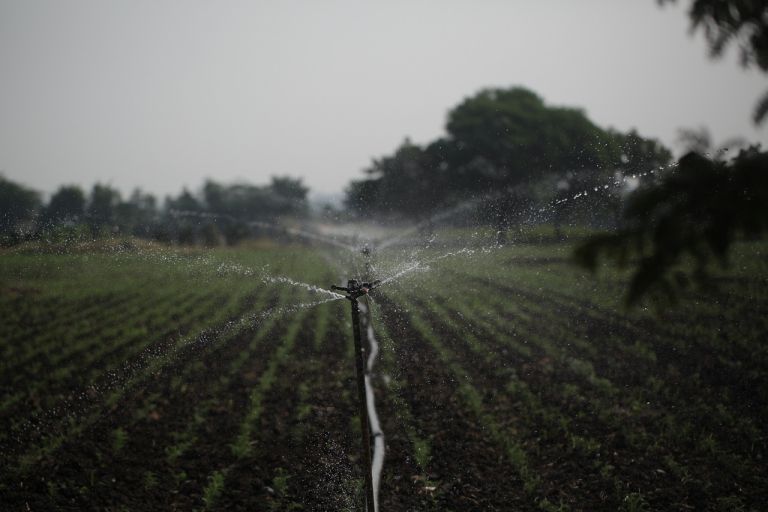
Agricultural Water Conservation
Agricultural water conservation is essential for environmental health and sustainable farming. Implementing smart practices ensures optimal crop growth while minimizing water waste.
1. Drip Irrigation
Drip irrigation stands out as the most efficient method for supplying crops with essential water and nutrients. This technique optimizes growth while minimizing waste by delivering precise amounts of water directly to each plant’s root zone.
2. Water Harvesting and Reuse
Water harvesting and reuse systems play a crucial role in sustainable water management. These systems collect and store runoff and stormwater, reducing downstream runoff volume and preventing water quality degradation. Farmers can reduce their reliance on freshwater sources and promote overall water conservation by utilizing stored water for various purposes.
3. Smart Irrigation Scheduling
Effective water management involves using irrigation schedules to determine the right frequency and duration of watering. By monitoring weather forecasts, soil moisture levels, and plant conditions, farmers can adjust their irrigation practices to prevent both under-watering and over-watering. This proactive approach optimizes water use, ensuring crops receive the right amount of water at the right time.
4. Drought-Resistant Crops
Cultivating crops suited to the local climate enhances productivity per unit of water. Drought-resistant varieties are particularly advantageous, as they reduce the risk of crop failure during water-scarce periods and contribute to economic stability for farmers.
5. Dry Farming
Dry farming relies on soil moisture stored from previous rainy seasons, eliminating the need for irrigation during dry periods. This location-specific, low-input approach allows crops to thrive within climate constraints.
6. Rotational Grazing
Strategically moving livestock across fields promotes pasture regeneration. Proper grazing management enhances water absorption and creates more drought-resistant pastures.
7. Compost and Mulch
The combination of compost and mulch significantly improves soil health and fertility. Compost enriches the soil with organic matter, while mulch helps retain moisture and suppresses weed growth.
8. Conservation Tillage
Conservation tillage techniques minimize soil erosion, conserve water, and enhance soil health. Farmers maintain their structure and reduce water loss by disturbing the soil less during planting.
9. Cover Crops
Cover crops protect bare soil from erosion and compaction. Their root systems stabilize the soil, preventing wind and water erosion. Additionally, cover crops improve soil health by adding organic matter.
10. Organic Farming
Organic farming prioritizes natural methods and materials to promote soil fertility, reduce reliance on synthetic chemicals, and conserve water. By avoiding chemical-intensive practices, farmers contribute to a healthier environment and sustainable water use.
In summary, implementing these water conservation techniques benefits both the environment and agricultural sustainability. By adopting these practices, farmers can optimize water resources while maintaining crop health and productivity.


